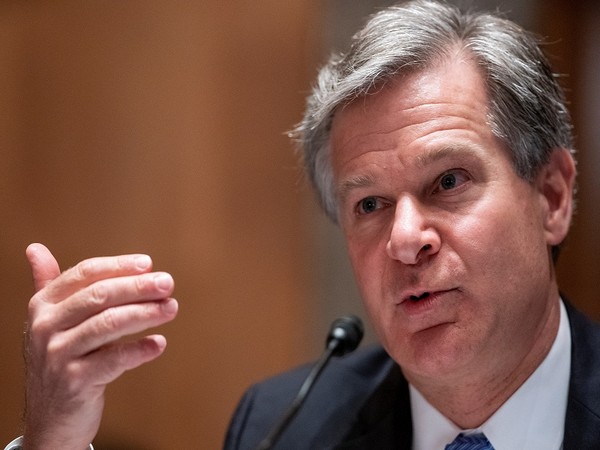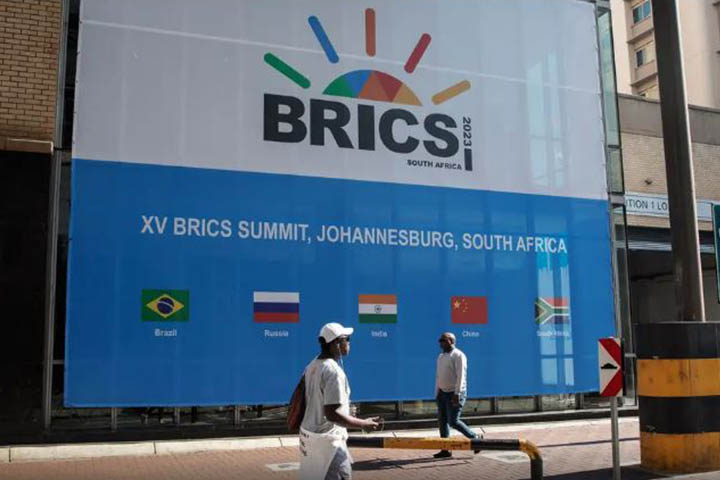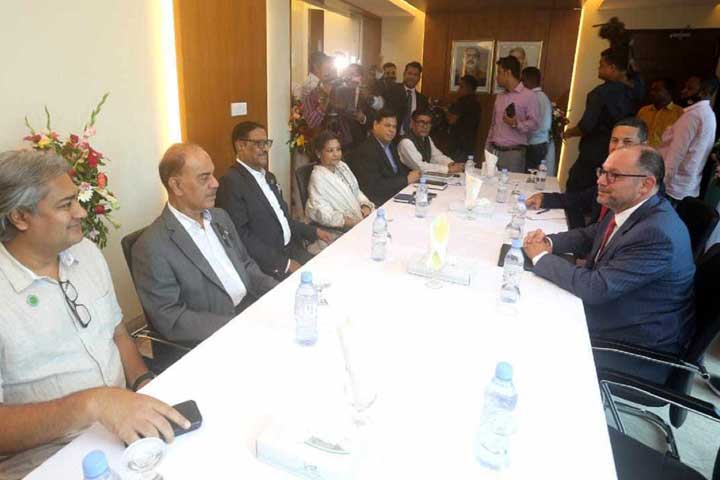Five Eyes' intelligence leaders accuse China of stealing 'intellectual property, trade secrets, and personal data'
The intelligence leaders of the 'Five Eyes' countries have accused China of posing a threat to the world, alleging that the country is stealing intellectual property, trade secrets, and personal data all across the world, as reported by CBS News.
These leaders made these claims on the news show '60 Minutes' on CBS News.
'Five Eyes' is a security alliance formed after World War II, comprising the United States, the United Kingdom, Canada, Australia, and New Zealand. It monitors the global threat landscape, including events such as the ongoing Israel-Hamas conflict in West Asia, Russia's military offensive in Ukraine, and what they refer to as China's unprecedented global espionage campaign.
According to CBS News, when discussing China's espionage, FBI Director Wray noted that there are approximately 2,000 active investigations underway to uncover Chinese efforts to steal data from various countries.
"The People's Republic of China represents the defining threat of this generation this era. There is no country that presents a broader, more comprehensive threat to our ideas, our-- our innovation, our economic security, and ultimately our national security. We have seen efforts by the Chinese government, directly or indirectly, trying to steal intellectual property, trade secrets, personal data-- all across the country," he said.
He added, "We're talking everything from Fortune 100 companies, all to smaller startups. We're talking about agriculture, biotech, health care, robotics, aviation, academic research. We probably have somewhere in the order of 2,000 active investigations that are just related to the Chinese government's effort to steal information."
Apart from this, the Director General of MI5, the U.K.'s FBI, Ken McCallum emphasized that China is making efforts to steal the military, government as well as academic data of the country.
McCallum stated, "This is not just about government secrets or military secrets. It's not even just about critical infrastructure. It's about academic research in our universities. It's about promising startup companies. People, in short, who probably don't think national security is about them."
In the same event, the intelligence leaders of the 'Five Eyes' countries flagged concerns over ongoing global espionage by China, CBS News reported.
David Vigneault, director of the Canadian Security Intelligence Service, said the partnership between the leaders of the 'Five Eyes' strengthens the alliance.
According to CBS News, the leaders of 'Five Eyes' nations, along with FBI Director Christopher Wray, made their first joint public appearance last week to issue a warning on the global espionage by China.
"The People's Republic of China represents the defining threat of this generation, this era," Wray said at the joint public appearance, adding, "There is no country that presents a broader, more comprehensive threat to our ideas, our innovation, our economic security, and ultimately our national security."
The intelligence directors warned further that in addition to the threats to national security, China has been stealing intellectual property from companies, CBS News reported.
Mike Burgess, the director-general of the Australian Security Intelligence Organisation, highlighted that one way in which China steals intellectual property is by targeting people on professional networking sites.
The Chinese state actor pretends to be a consultant or a conference host and then uses the site to lure a businessman to a third country, CBS News quoted them as saying.
The actor may access the target's computer in their hotel room and steal intellectual property from the target's company, they added."
They seize commercial advantage to our disadvantage," Burgess was quoted as saying further by CBS News.
The Chinese government targets dissidents across the world through a programme named 'Operation Fox Hunt', which is an initiative supposedly intended to find fugitives charged with domestic corruption, the report noted.
FBI Director Wray noted that China used this programme to harass, stalk, surveil, and intimidate Chinese dissidents in foreign countries.
"These are uncoordinated law enforcement operations that violate our sovereignty and international norms," Wray added.
Later, during the news show 60 Minutes, the Five Eyes leaders also addressed the "perennial threat" posed by Russia.
Ken McCallum, the Director General of M15, which is responsible for protecting the UK, its citizens and its interests at home and overseas against threats to national security, said his country had taken strict action against the Russian's covert presence even before its "invasion" of Ukraine, reported CBS News.
After a British double agent was poisoned in the English city of Salisbury in 2018, the UK removed the undeclared Russian intelligence officers who were part of the Russian diplomatic presence in the country.
McCallum added that since the "invasion" of Ukraine, the UK has expelled several Russian diplomats.
"But in our line of work, never underestimate the Russian intelligence services. They will be looking to use any other available means, including cyber methodology, to continue to exert influence and gather intelligence," McCallum added.
Meanwhile, Wray said the FBI has partnered with other intelligence operations to disrupt significant Russian cyber operations, including a malware called "Snake", CBS News reported.
He added that the FBI and its partners were able to turn the malware on itself, later rendering it ineffective, the report added.
The director of the Canadian Security Intelligence Service, Vigneault, explained how he and his colleagues manage everything that is going on across the world. He made an analogy borrowing from his country's national pastime -- ice hockey.
"When the puck goes into the corner and you have to defend yourselves, you know you have your partners with you, your players with you on the ice to defend," Vigneault said, adding, "And that's what makes us stand taller in front of the threat."
25 Oct 2023,14:31




















 Live Tv
Live Tv









